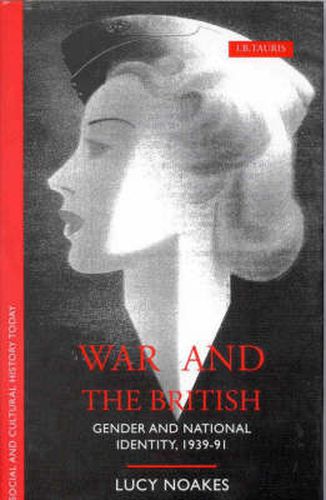Readings Newsletter
Become a Readings Member to make your shopping experience even easier.
Sign in or sign up for free!
You’re not far away from qualifying for FREE standard shipping within Australia
You’ve qualified for FREE standard shipping within Australia
The cart is loading…






Popular memory of World War II was the dominant factor contributing to a sense of national identity in the Falklands War of 1982 and the Gulf War of 1991. This text looks at public and private ideas of national identity, how they were arrived at and the extent to which they were shaped by gender. It provides a synthesis between the key concepts of national identity , popular memory and gender as a social and cultural construct. Recent studies of World War II, and popular memory of the war, have focused on the extent to which it is remembered as a people’s war . This book builds on this work by examining how ideas about gender shaped the experiences of the war and its memory and concludes that despite women’s wartime role in total war , men in the armed forces were encouraged to regard themselves as being bound together in unity by masculinity and common experience, while women remained individuals with prime responsibilities to home and family. Their role as active participants remained problematic and remained so even the Gulf War in 1991.
$9.00 standard shipping within Australia
FREE standard shipping within Australia for orders over $100.00
Express & International shipping calculated at checkout
Popular memory of World War II was the dominant factor contributing to a sense of national identity in the Falklands War of 1982 and the Gulf War of 1991. This text looks at public and private ideas of national identity, how they were arrived at and the extent to which they were shaped by gender. It provides a synthesis between the key concepts of national identity , popular memory and gender as a social and cultural construct. Recent studies of World War II, and popular memory of the war, have focused on the extent to which it is remembered as a people’s war . This book builds on this work by examining how ideas about gender shaped the experiences of the war and its memory and concludes that despite women’s wartime role in total war , men in the armed forces were encouraged to regard themselves as being bound together in unity by masculinity and common experience, while women remained individuals with prime responsibilities to home and family. Their role as active participants remained problematic and remained so even the Gulf War in 1991.